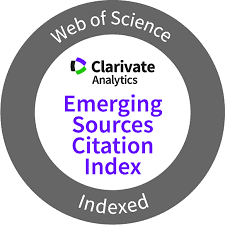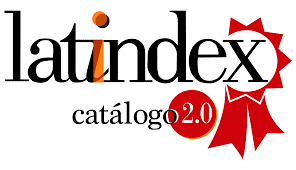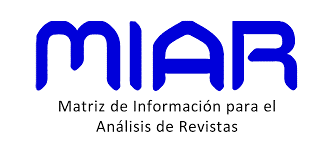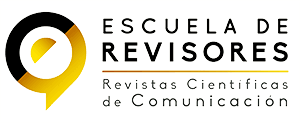Reflexiones sobre el buen gobierno corporativo en las empresas periodísticas
DOI:
https://doi.org/10.31921/doxacom.n4a3Palabras clave:
Empresa informativa, gobierno corporativo, gobierno informativo, propiedad de los medios, conflictos de interesesResumen
El interés por el gobierno corporativo en las empresas informativas no es un tema nuevo, pero ha adquirido singular relevancia en los últimos años, como resultado de las transformaciones que se han vivido en los esquemas de propiedad y de gestión de las compañías. En este artículo se trata de explicar por qué la naturaleza de los contenidos periodísticos impone especiales condiciones al ejercicio del gobierno corporativo en este tipo de empresas. Primero se tratará de justificar que en las empresas informativas tiene más sentido pensar en estructuras de gobierno corporativo basadas en los stakeholders y en los principios de la gobernanza pública, más que en los sistemas convencionales centrados en la generación de valor para los accionistas. Posteriormente, se comentarán algunas sugerencias que se han planteado para mejorar el gobierno corporativo en empresas periodísticas, y más en concreto aquéllas relacionadas con el funcionamiento de los Consejos de Administración, siempre con la idea de avanzar en la mejora de lo que definiremos como gobierno informativo. El análisis concluye con una relación de algunos de los aspectos del gobierno corporativo que requieren especial atención en el caso de las compañías que se dedican a la elaboración y difusión de noticias.
Descargas
Citas
Alexander, J. A., Weiner, B. J. (1998): ‘‘The Adoption of the Corporate Governance Model by Nonprofit Organizations’’, Nonprofit Management & Leadership, 8 (3), 1998, pp. 223-242.
An, S., Jin, H. S. (2004): ‘‘Who Sits on the Board of Publicly Traded Newspaper Companies?: Ties to Financial Institutions and Leading Advertisers’’, Ponencia presentada en la 6th World Media Economics Conference, Montreal, Canada, 2004, May, 12-15.
Argandon ̃a, A. (2004): Conflicts of Interests: The Ethical Viewpoint. IESE Business School Working Paper, N.o 552. IESE Business School, 2004, Barcelona.
Aste, L. J. (1999): ‘‘Reforming French Corporate Governance: A Return to the two-Tier board?’’, The George Washington Journal of International Law and Economics, 32(1), 1999, pp. 1-72.
Bardoel, J., D’Haenens, L. (2004): ‘‘Media responsibility and accountability: New conceptualizations and practices’’, Communications. The European Journal of Communication Research, 29, 2004, pp. 5-25.
Becht, M., Bolton, P., Ro ̈ell, A. (2002): Corporate Governance and Control, NBER Working Paper Series, N.o 9371, 2002.
Bogart, L. (2000): ‘‘Church and State’’, Media Studies Journal, 14 (2), 2000, pp. 122-129.
Bogart, L. (2004): ‘‘Reflections on content quality in newspapers’’, Newspaper Research Journal, 25 (1), , pp. 40-53.
Burt, Tim (2004): ‘‘The Hollinger Chronicles’’, The Financial Times, September, 3.
Cadbury, A. (1992): Study Group on Directors’ Remuneration, Final Report, London.
Champlin, D., Knoedler, J. (2002): ‘‘Operating in the Public Interest or in Pursuit of Private Profits?’’, Journal of Economic Issues, XXXV (2), 2002, pp. 459-468.
Craig, Robert L. (2004): ‘‘Business, Advertising, and the Social Control of News’’, Journal of Communication Inquiry, 28 (3), 2004, pp. 233-252.
Cranberg, G., Bezanson, R., Soloski, J. (2001): Taking Stock: Journalism and the Publicly Traded News- paper Company. Ames: Iowa State University Press.
Croteau, D., Hoynes, W. (2001): The Business of Media. Corporate Media and the Public Interest. Thounsand Oaks, CA: Pine Forge.
Demers, D., Merskin, D. (2000): ‘‘Corporate News Structure and the Managerial Revolution’’, Journal of Media Economics, 13 (2), 2000, pp. 103-121
Dreier, P., Weinberg, S. (1979): ‘‘Interlocking Directorates’’, Columbia Journalism Review, 18, 1979, pp. 51-68.
Dyck, A., Zingales, L. (2002): The Corporate Governance Role of the Media, NBER Working Paper Series, N.o 9309, 2002.
Eisenmann, T. (2004): ‘‘Betting on Google’s Future’’, The Wall Street Journal, August, 24.
Freeman, E. R., Wicks, A. C., Parmar, B. (2004): Stakeholder Theory and ‘The Corporate Objective
Revisited’’’, Organization Science, 15 (3), 2004, 364-369.
Frey, B. S. (2003): What can we Learn from Public Governance?, Working Paper Series N.o 166, 2003,
Institute for Empirical Research in Economics, University of Zurich.
Gershon, R. A., Alhassan, A. D. (2004): ‘‘AOL Time Warner & WorldCom Inc. Corporate Governance and Diffusion of Authority’’, Ponencia presentada en la 6th World Media Economics Conference, Montreal, Canada, 2004, May, 12-15.
Giles, M., Hertzman, C. (2000): ‘‘Corporate Ownership and News Bias: Newspaper Coverage of the 1996 Telecommunications Act’’, The Journal of Politics, 62 (2), 2000. pp. 369-386
Goldmark Jr., P. C. (2001): ‘‘Old Values, New World: Harnessing the Legacy of Independent Journalism for the Future’’, Ponencia presentada en la Forth Annual Aspen Institute Conference on Journalism and Society, The Aspen Institute, 2001.
Hackett, R. A., Uzelman, S. (2003): ‘‘Tracing Corporate Influences on Press Content: a summary of recent NewsWatch Canada Research’’, Journalism Studies, 4 (3), 2003, pp. 331-346.
Hahn, R. W. (2002): ‘‘Disclosing Conflicts of Interest: Some Personal Reflections’’, AEI-Brookings Joint Center for Regulatory Studies, Working Paper 02-2, 2002.
Harris, J. T. (2001): ‘‘The Bottom Line. Profits and Journalism in Newspapering’’, Press & Politics, 6 (4), 2001, pp. 106-112.
Informe Aldama (2003). Informe de la Comisión Especial para el Fomento de la Transparencia y Seguridad en los Mercados y en las Sociedades Cotizadas. Madrid: CNMV.
Jansen, P. J., Kilpatrick, A. R. (2004): ‘‘The dynamic nonprofit board’’, The McKinsey Quarterly, 2, 2004, pp. 72-82.
Jung, J. (2000): ‘‘How Magazines Covered Media Companies’ Mergers: The Case of the Evolution of Time Inc.’’, Journalism & Mass Communication Quarterly, 79 (3), 2000. pp. 681-696.
Jung, J. (2001): "The influence of Media Ownership on News Coverage: A case of CNN´s Coverage of Movies", Ponencia presentada en la AEJMC Conference 2001, Washington, D.C. Acceso en http://list.msu.edu/cgi-bin/wa A2=ind0109b&L=aejmc&F=&S=&P=3891
Knott, D.L., Carrol, V., Meyer, P. (2002): "Social Responsability Wins When CEO Has been Editor", Newspaper Research Journal, 23 (1), 2002, pp.25-37.
Kundel, T. (2003): "The Sound of Silence", American Journalism Review, 2003, December/January, p.4.
Layton, C. (2003): ‘‘News Blackout’’, American Journalism Review, 2003, December/January, pp. 18-31.
Letter From the Founders (2004): Google IPO. Wall Street Journal, April 2004, A10.
Lewis, R. (2002): ‘‘New York Times Company president and chief excecutive officer Russell Lewis on ‘The CEO’s lot is not a happy one...’ (with apologies to Gilbert and Sullivan)’’, Academy of Management Executive, 16 (4), 2002, pp. 37-42.
McAllister, M. P. (2002): ‘‘Television News Plugola and the Last Episode of Seinfeld’’, Journal of Communication, 52 (2), 2002, pp. 383-401.
McChesney, R. W. (2003): ‘‘The Problem of Journalism: a political economic contribution to an explanation of the crisis in contemporary US journalism’’, Journalism Studies, 4 (3), 2003, pp. 299-329.
Meyer, P. (2004): ‘‘The Influence Model and Newspaper Business’’, Newspaper Research Journal, 25 (1), 2004, pp. 66-83.
Miller, R. A. (2002): ‘‘The Frankenstein Syndrome: The Creation of Mega-Media Conglomerates and Ethical Modeling in Journalism’’, Journal of Business Ethics, 36, 2002, pp. 105-110.
Mintz, M. (1991): ‘‘The Pro-Corporate Tilt’’, Nieman Reports, Fall, 1991, pp. 23-33 y 75.
Moore, A. (2003): ‘‘Entangling Alliances’’, Columbia Journalism Review, 2003, March/April, p. 64.
OECD (1999): OECD Principles of Corporate Governance. Paris: OECD Publications.
Picard, R. G. (2004): ‘‘Commercialism and Newspaper Quality’’, Newspaper Research Journal, 25 (1), 2004, pp. 54-65.
Pollard, E. (2003): Corporate Media vs. Citizens: How Media Mergers Threaten Democracy.
Price, Cindy J. (2003): ‘‘Interfering Owners or Meddling Advertisers: How Network Television News Correspondents Feel About Ownership and Advertiser Influence on News Stories’’, Journal of Media Economics, 16 (3), 2003, pp. 175-188.
Project for Excellence in Journalism. (2004). The State of the News Media 2004. http:// www.stateofthenewsmedia.org/journalist survey commentary.asp
Roberts, G., Kunkel (Eds.) (2002): Breach of Faith: A Crisis of Coverage in the Age of Corporate Journalism. Arkansas: University of Arkansas Press.
Roberts, G., Kunkel, T., Layton, C. (Eds.) (2001): Leaving Readers Behind: The Age of Corporate News- papering. Arkansas: University of Arkansas Press.
Rosenstiel, T., Mitchell, A. (2004): ‘‘The Impact of Investment in Newsroom Resources’’, Newspaper Research Journal, 25 (1), 2004, pp. 84-97.
Rowse, A. E. (2000): Drive-by Journalism: The Assault on your Need to Know. Monroe: Common Courage Press.
Sánchez Aranda, J. J., Rodríguez, R. A. (1999): ‘‘Profesionalidad y e ́tica. El caso de los periodistas españoles’’, Comunicación y Sociedad, 12 (2), 1999, pp. 93-114.
Serrin, W. (Ed.) (2000): The Business of Journalism. New York: The New Press.
Shepard, A. C. (2001): ‘‘Mogul’s Millions’’, American Journalism Review, 2001, July-August, pp. 20-25.
Shleifer, A., Vishny, R. (1997): ‘‘A Survey of Corporate Governance’’, Journal of Finance, 52, 1997, pp. 737-783.
Soley, L. C. (2002): Censorship Inc.: the corporate threat to free speech in the United States. New York: Monthly Review Press.
Solomon, N. (2000): ‘‘Coverage of Media Mergers’’, Nieman Reports, Summer, 2000, pp. 57-59.
Soloski, J. (2004): ‘‘Taking Stock Redux: Corporate Ownership and Journalism of Publicly Traded News- paper Companies’’, Ponencia presentada en el Workshop on Corporate Governance of Media Companies, October 2004, Stockholm, Sweden.
Sundaram, A. K., Inkpen, A. C. (2004): ‘‘Stakeholder Theory and ‘The Corporate Objective Revisited: A Reply’’, Organization Science, 15 (3), 2004, pp. 370-371.
Sutter, D. (2002): ‘‘Advertising and Political Bias in the Media. The Market for Criticism of the Market Economy’’, American Journal of Economics and Sociology, 61 (3), 2002, pp. 725-745.
Tirole, J. (2001): ‘‘Corporate governance’’, Econometrica, 69 (1), 2001, pp. 1–35.
Turner, T. (2004): Beef With Big Media’’, Washington Monthly, July/August, 2004.
Turow, J. (1994): ‘‘Hidden Conflicts and Journalistic Norms: The Case of Self-Coverage’’, Journal of Communication, 44 (2), 1994, pp. 237-254.
Ureneck, L. (1999): ‘‘Newspapers Arrive at Economic Crossroads’’, Nieman Reports, Special Issue, Sum- mer, 1999, pp. 3-19.
Van Liedekerke, L. (2004): ‘‘Media ethics: From corporate governance to governance, to corporate social responsibility’’, Communications. The European Journal of Communication Research, 29, 2004, pp. 27-42.
Viénot Report (1995). Rapport du comité sur le governament d’entreprise présidé par M. Mar Viento. Paris: MEDEF.
Weimer, J., Pape, J. C. (1999): ‘‘A taxonomy of Systems of Corporate Governance’’, Corporate Governance: An International Review, 7 (2), 1999, pp. 152-166.
Williams, D. (2002): ‘‘Synergy Bias: Conglomerates and Promotion in the News’’, Journal of Broadcasting & Electronic Media, 46 (3), 2002, pp. 543-472.
Zingales, L. (1998): ‘‘Corporate Governance’’, pp. 497-503 en Newman, P. (Ed.). The New Palgrave Dictionary of Economics and the Law. New York, NY: Macmillan.
Descargas
Publicado
Cómo citar
Número
Sección
Licencia
Derechos de autor 2006 http://creativecommons.org/licenses/by-nc/4.0

Esta obra está bajo una licencia internacional Creative Commons Atribución-NoComercial 4.0.



























